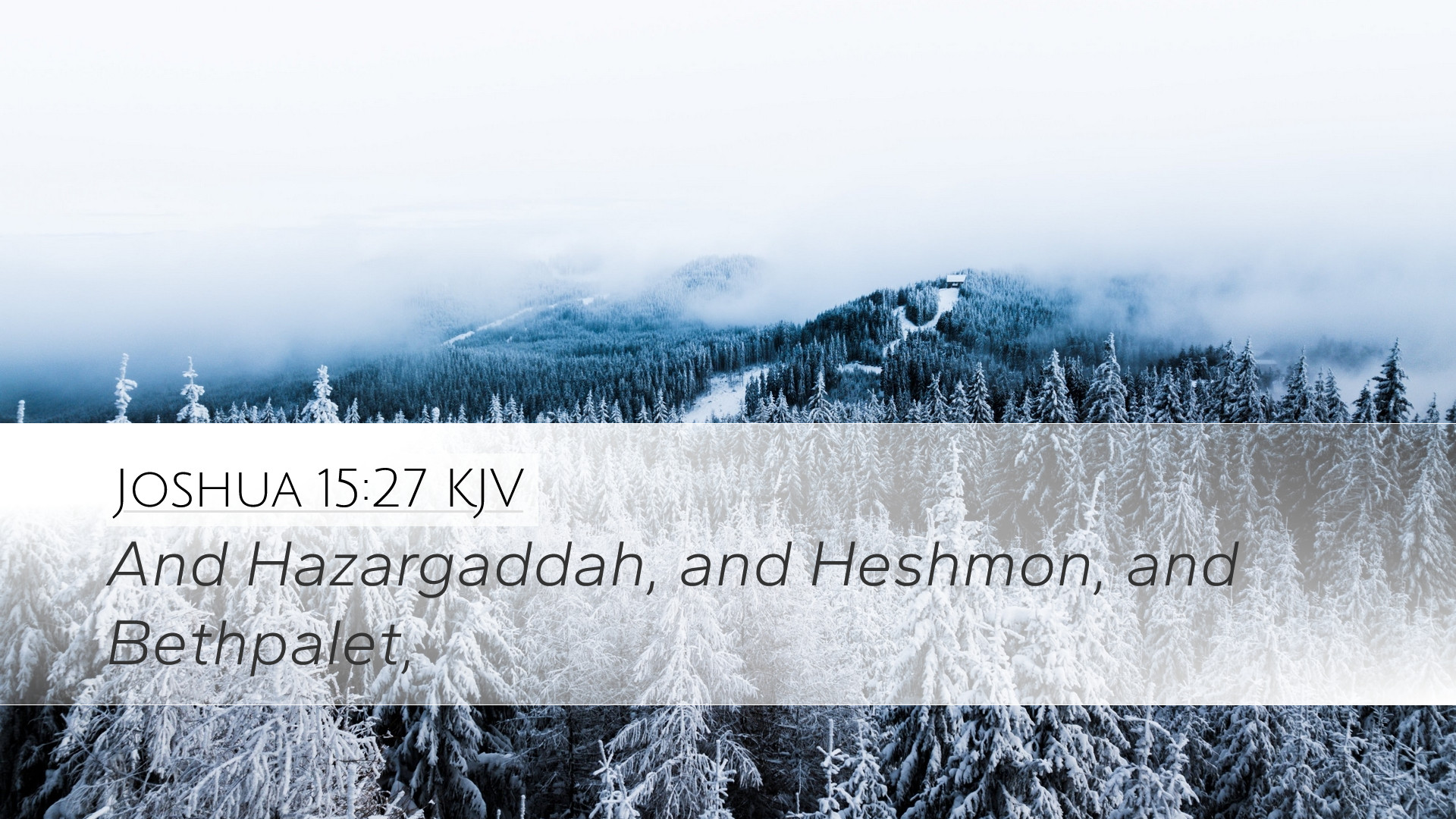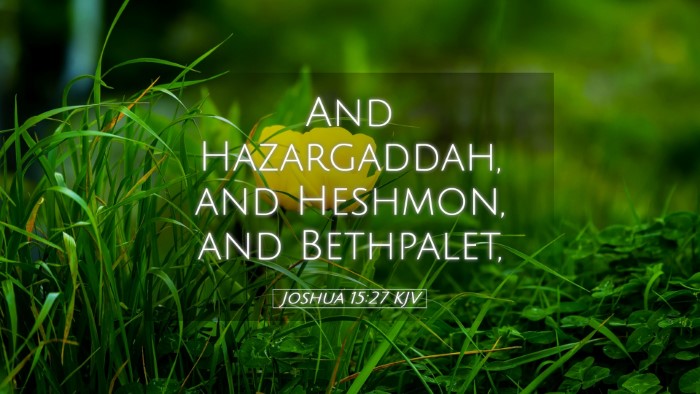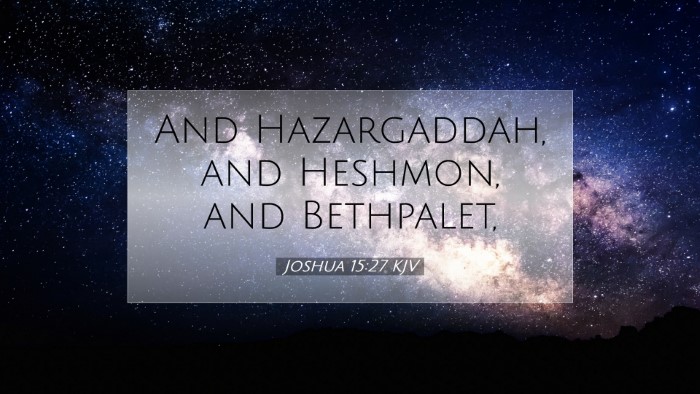Commentary on Joshua 15:27
Verse Text: "And Hazar Gaddah, and Heshbon, and Eltolad." (Joshua 15:27)
Introduction
This verse is part of the broader narrative of the book of Joshua, which details the allocation of land among the tribes of Israel after their conquest of Canaan. The mention of specific cities signifies the fulfillment of God’s promise to His people, as they begin to take possession of the land that was long awaited. The significance of this verse lies not only in the geographical mentions but also in what they represent in the broader context of biblical history and theology.
Historical Context
This passage occurs in a section of Joshua that lists the boundaries and allotments of land to the tribe of Judah. The cities mentioned—Hazar Gaddah, Heshbon, and Eltolad—are critical for understanding the geographical and theological framework of the Israelites’ settlement in Canaan.
Hazar Gaddah
According to various historical sources, Hazar Gaddah may refer to a lesser-known town that exemplifies the settlements established as the Israelites claimed their inheritance. Its name means "the village of the hedge," suggesting pastoral or agricultural significance, which resonates with God's provision for His people.
Heshbon
Heshbon was a more prominent city in the region, often associated with the Amorites. Its inclusion in this verse illustrates the importance of local strongholds that served as cultural and political centers in the land. Adam Clarke highlights that Heshbon's mention is particularly significant because it reflects the fulfillment of God’s promises regarding the dispossession of former inhabitants and the establishment of Israel’s identity in the land.
Eltolad
Eltolad's mention contributes to the geographical completeness of the tribal allotments. Being part of the territory assigned to Judah, it holds its place within the broader narrative as a symbol of the continuity of God's covenantal promise. Matthew Henry notes that Eltolad, like other cities, portrays God's steadfastness in leading His people towards their divinely appointed heritage.
Theological Implications
The allocation of cities in this passage communicates profound theological truths. The physical territories and their associated cities serve as typologies for spiritual truths—the safety, sustenance, and community God provides His people.
Covenantal Faithfulness
The explicit listing of cities demonstrates God’s faithfulness to His covenant with Israel. Each city represents a fulfilled promise, reflecting God's determination to establish His people. Albert Barnes emphasizes that this geography is more than mere land; it signifies divine ownership and His providential care that allocates rightful inheritance to Judah, thus demonstrating God's active involvement in human history.
Identity and Heritage
For the Israelites, these cities were not arbitrary. They were integral to their identity as descendants of Jacob, the inheritors of God's promises. Heshbon, in particular, stands as a reminder of the sovereignty of God over the nations, as He both raises kingdoms and brings them low. This aspect creates a rich context for pastors and theologians to explore themes of place, belonging, and divine providence in their congregations' lives.
Church and Community
The mention of specific locations illustrates God's concern with community dynamics within the body of believers today. Just as God cared for the tribes of Israel through distinct allotments, He cares for the Church by establishing local congregations that embody His mission on earth. The concept of community in the New Testament finds its roots in this communal aspect of God's plan, signifying localities as spaces for worship, growth, and mission.
Practical Applications
Understanding these cities within the verse provides several insights for contemporary believers, especially in pastoral and theological contexts.
- Stewardship of Resources: Just as the Israelites were tasked with managing their inheritance, today’s believers are called to steward the resources and gifts God provides within their communities.
- Identity Formation: Exploring the significance of one's heritage and identity, both as individuals and a church, is key to understanding our place within God’s narrative.
- Your Place in God’s Plan: Each believer has a role and is given unique gifts for the benefit of the church, similar to how each city serves a purpose for the tribe of Judah.
Conclusion
Joshua 15:27, while seemingly just a list of towns, speaks volumes about God’s faithfulness, the identity of His people, and the spiritual truths encapsulated in the narrative of land allocation. For pastors, students, and scholars alike, this verse invites a deeper reflection on God’s providential care and the ways He continues to work in the lives of His people, cultivating a sense of belonging and purpose within His redemptive story.


